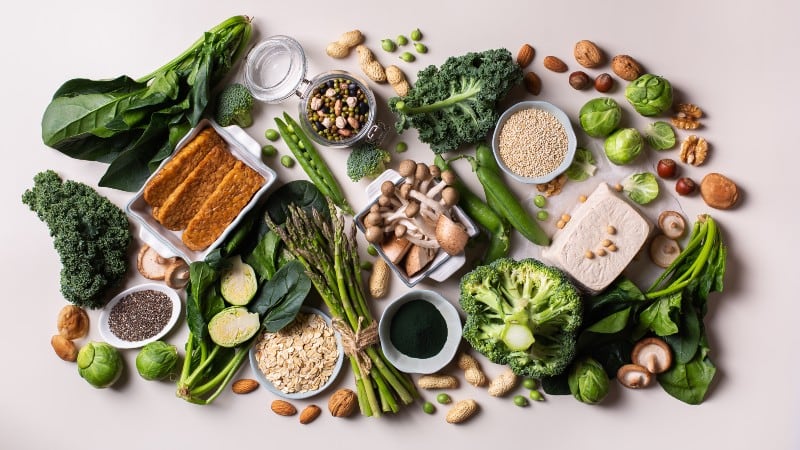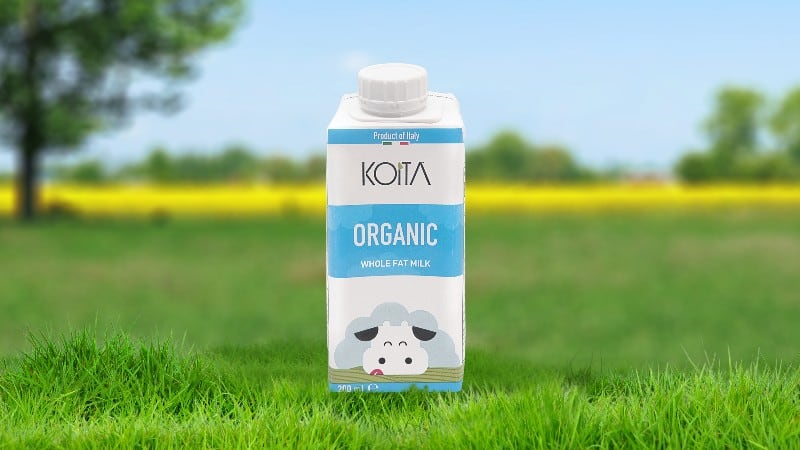Reduce and replace’: Plant-based brands can slash salt by following beverage sector’s sugar strategy - leading academic
Plant-based brands need to slash salt levels by adopting a similar ‘reduce and replace’ strategy used by the sugar-sweetened beverage sector in order to ensure that consumers can reap health benefits of the trend, according to a nutrition expert.
Although the plant-based product sector has seen incredible growth over the past few years, significant concerns still remain regarding the veracity of health and nutritional claims made by brands in the sector, as well as the as-yet unverifiable potential risks of long-term consumption.
One of the most commonly-seen concerns raised by nutritionists has been that of high sodium content, with most plant-based products in the market today considered highly-processed foods that also tend to require salt to mask potential off-flavour notes, particularly when it comes to the plant-based meat sector.
Novel protein production: APAC consumer acceptance soars but scalability still hinders affordability
Novel protein production technologies such as cultivated meat and precision fermentation are seeing consumer acceptance soar in APAC, but are still some way off achieving price parity for the everyday consumer due to challenges with regulations and scale.
The interest in cultivated meat and fermentation has been particularly obvious from an investment perspective – industry reports have shown that as of 2021, a total of US$1.38bn has already been invested into the cultivated products sector, a sector which as yet has not yet launched any products at a large commercial scale; and a total of US$1.69bn was invested into protein fermentation in the 2020 to 2021 period alone.
This, and reports of interest from large existing food and beverage firms such as Nestle, Thai Union and CP Foods demonstrates that the F&B industry at large believes investing in the potential of this sector is important for them to be future-ready, and the fact is that these investments and the accompanying marketing and branding set to come with these can only drive up sector growth.
Converting consumer demands into technical concepts key challenge for APAC’s plant-based sector
The ability to accurately convert consumer demands and preferences into real, technical product concepts remains a key challenge for the plant-based sector in the APAC region, according to industry experts at Roquette.
Although the plant-based sector is increasingly coming into its own in the Asia Pacific region, especially in the plant-based meat area, its fast growth does not yet mean that all kinks in the production and innovation process have been ironed out.
Low sugar, big fibre: Creamy mouthfeel key to convert Indonesian consumers to plant-based beverages
Plant-based beverages must be able to still provide a creamy mouthfeel in order to successfully convert consumers over to healthier, low-sugar options for the long-term in Indonesia, especially when these are priced at a higher tier than traditional dairy options.
Many markets in Asia are very sensitive when it comes to product pricing and taste, even when a novel product comes along that is able to convey greater health benefits.
And Indonesia is no exception to this, which has created difficult challenges for plant-based manufacturers in the region to convert consumers especially when it comes to dairy-free beverages.
“In Indonesia, it is common for consumers to opt away from a healthier option that is right in front of them and available if the price of said product is higher – this is an issue that many manufacturers are facing when trying to sell healthier options, such as plant-based beverages,” local F&B firm PT. Lautan Natural Krimerindo Kevin Aprilio Gani told FoodNavigator-Asia.
One of the key ones that still needs to be overcome with a high level of accuracy is to convert what consumers want into real product concepts – and the qualitative nature of this challenge only adds to its difficulty.
“As it is, everything in this space has already got to be created as it is a completely new sector, so it is even more important to accurately understand the properties [that make a good product],” Roquette Senior Executive Vice President Jeremy Burks told FoodNavigator-Asia.
Nutrition: Plant-based drinks ‘not real alternatives’ to dairy milk – study
Nutrient quality in plant-based beverages should be considered on a par with sustainability credentials, researchers say as they assessed the quality as well as quantity of micronutrients in common plant-based drinks.
The study, carried out by Swiss scholars and nutrition experts, analyzed the nutrient profile of 27 samples of plant-based beverages and two of cow’s milk were compared. The plant drinks, 13 of which were fortified, were collected from two major supermarkets in Bern and included soy, almond, cashew, coconut, hemp, oat, rice and spelt.
To compare nutrient and energy intakes, the researchers used the dietary reference values for Germany, Austria and Switzerland and also estimated the quality of proteins through calculating the digestible indispensable amino acid score (DIAAS).
Nutrients such as vitamins C, A, E, D2, K1 and K2 were analyzed as well as phosphorus, sodium, manganese, magnesium, potassium, iron, copper, calcium, zinc, iodine, biotin, niacin, pantothenic acid, and others.





